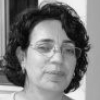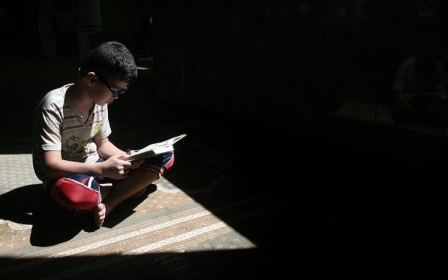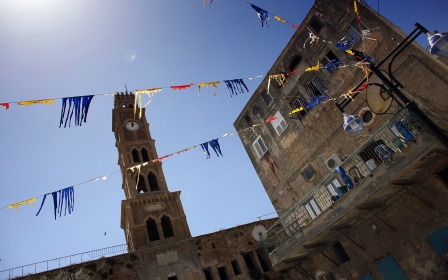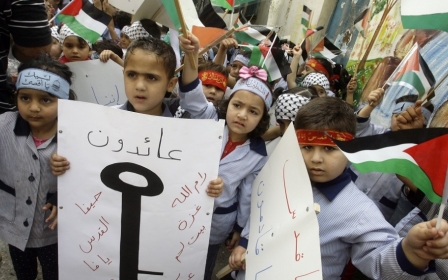'Eliminate' Arabic in Israel? Go ahead!
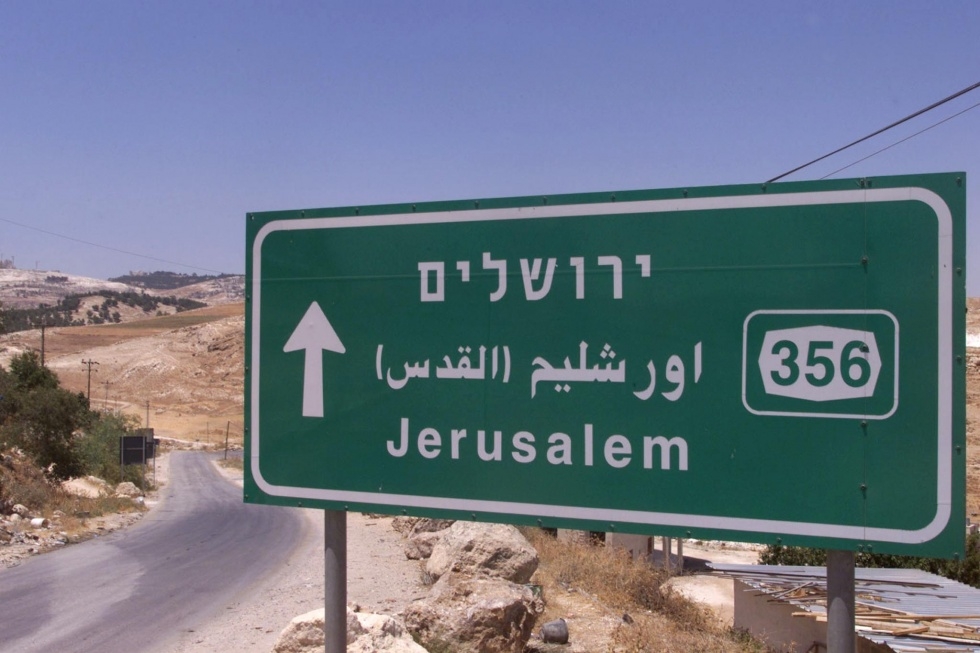
Every time a few right-wing Knesset members get together and propose to eliminate Arabic as an official language in Israel, there is an automatic strong objection of liberal Jews and Palestinian citizens of the country. This time even Rubi Rivlin, Israel's newly elected (right-wing) president, spoke up and objected to the proposal.
My inbox is full of requests to sign petitions against the proposed law: " … We, the residents of this state, demand that the official status of Arabic in Israel is maintained and even strengthened … ". The petitions go on to stress justice, equality, respect and a shared society.
I ask myself why I didn't sign this time. For years I thought that it is better if the true character of the Jewish State is exposed. I believe that if the limitations to its democracy were to become clear, it would be easier to struggle for true equality.
The people who automatically object should ask themselves "Why?" What are they protecting? Are they protecting an important value or group right? Are they protecting the Arabic language? Or maybe they are protecting the face of Israel?
We now hear about the third proposal over the past six years to make Hebrew the sole official language. The first two proposals fell. This time the rationale behind the proposal is Orwellian: "The proposed law will ensure for every citizen the freedom of language. It will encourage other languages and help secure them within their communities. It will contribute to the social cohesiveness of the State of Israel and to building the badly needed collective identity which will crystalize mutual trust in society and safeguard democratic values."
In the beginning
Hebrew and Arabic are the two official languages in Israel. In 1948 there was so much legislative work to be done in the newly established parliament that some of the British laws were kept untouched. This was one of them.
From 1922-1947 both Hebrew and Arabic were official (together with English) in what was then a British Mandate for Palestine. In 1948 Arabic was declared an official language, not out of principle, nor after a long public debate, but for practical reasons. It was as if they said that they would deal with this article of the King when they found the time.
Arabic is the first language of the country's Palestinian citizens inside the so-called green line, who make up 18% of the Israeli population. It is also the first language of the Jews who emigrated from North Africa, Iraq, Yemen and Egypt in the early 1950's. The second and third generation of these Jews (about 30% of the population) no longer speak Arabic. They "willingly" participated in the melting pot project called the Zionist State, which encouraged the Jewish immigrants to leave the ways of their old country behind.
The law says that the State must offer services such as official signs (road signs, hospital signs etc), governmental documents and court procedures in both Hebrew and Arabic. The existing law has not made Israel a bilingual country. Israel is ethno-centric and Hebrew is the main language. Our system, de facto, is monolingual.
Arabic is very much present in the public schools in Arab towns and villages. Other than that, in the public sphere it appears on road signs, on official documents and on medicine pamphlets.
Government employees are not obliged to be bilingual as they are in Canada, for example. Arab parliament members who choose to speak Arabic in the Knesset are seen as extremists, and such an act is usually a provocation rather than part of the natural course of their work.
One might imagine that if Arabic is an official language the Jewish majority would acquire it as well. However, only 5% of the Jewish high school students choose to study Arabic at a high level. The others take the mandatory two-year programme. These 5% view Arabic in an instrumental way, as a means to know the enemy. They choose to learn Arabic because they seek a career in the military.
No practical benefit
From a practical viewpoint, there is no need for Arabic on road signs, on court orders or on official documents. Most Arab citizens are bilingual and can get by with Hebrew. This leaves us with the cultural and political importance of Arabic as an official language.
An important aspect of bilingualism is cultural. In Israel, after 66 years, there is no Arabic in the public sphere - no national theatre, no major media outlets, no book publications and no university. Since 1967, the Palestinian minority in Israel is less culturally isolated than it was in the first years of the State.
The borders with the West Bank and Gaza opened in 1967 due to the military occupation. Ironically, this also eased open the borders of Arab citizens of Israel, giving them greater opportunity to make contact with other Palestinians and to participate with them in cultural, academic and other intellectual events. Until 1967, they had been a political and linguistic minority in a territory that was surrounded by Arabic speakers.
The media revolution also liberated them. The borders have been rendered meaningless by satellite dishes that can pick up the multitude of stations beaming information from the Arab world. These satellite dishes are among the most distinguishing elements of Arab towns or neighbourhoods in Israel.
Language and nation building
Much has been said about the symbolic importance of language in building a national and ethnic identity. Israeli Jews know that. Our identity was very much based around Hebrew. The revival of this old, sacred and unspoken language is a wonder in linguistic literature.
The British law of 1922 was the first time that Hebrew was ever recognized as an official language. Jews in Israel were encouraged and forced (not physically) to speak only Hebrew. My paternal grandparents came from Russia in the 1920's, and my grandmother said that she and her friends were publicly scolded on the streets of Tel-Aviv when they spoke Russian.
But the project to "Hebrewize" the Jews was more complex when it came to the Jews from Arab countries. Since language is part of one's culture and identity, they were asked to give up their Arabness. They were made to believe that their Arabness contradicted their Jewishness. There was no similar claim made to European Jews. My grandmother's Jewishness did not contradict her Russian culture.
The 18% of Palestinian citizens in Israel are the only Arabs in the world who live as a minority on their own land. This group is seen as a threat to the Jewish State. The State has done what it can to weaken this group as a national collective.
After most of the Palestinians were turned into refugees in 1948, most of their land was confiscated and nationalized. Those who managed to remain lived under military rule for 20 years and their political leaders were constantly persecuted. All of this took place while Arabic was an official language.
If the new proposed law passes and Arabic is officially erased as the language of this land, it will be the latest symbolic act of oppression that the Zionist regime imposes.
I don't think that it will do much practical harm to the Palestinian citizens (as long as the Arab public schools continue to teach in Arabic and, so far, there is no indication that that will change). It will be yet another step towards raising the thin veil that tries to protect the illusion that Arabs can integrate in a Jewish state, as non-Jews and non-Zionists.
What does it mean for the Jews?
I am sad that the country I live in alienates itself from its citizens and neighbors. My maternal grandparents spoke Arabic in Algeria. My mother's Arabic was erased by the French colonialists. When I went to high school in Israel I could choose between Arabic and French as a third language (after Hebrew and English), and I chose French. I was taught to believe I would not need Arabic for anything.
My daughters speak Arabic. It took three generations in my family, but most Israeli Jews will live in a country which negates their grandparents' culture and the culture of their neighbors. The State will distance itself even further from its Palestinian citizens.
This proposed law is a law of cultural cleansing. I want to live in the Middle East not as a colonialist, not as a guest or conqueror, but as a daughter of the land. The Jews pray to the East but dream of the West. This is not my dream. I see Arabic as the key to a full Middle Eastern identity.
It is time to call Israel's bluff that it is possible to define a state as belonging to one ethnic group while maintaining a democracy. It is time for Palestinian and Jewish citizens to be on guard against helping Israel to keep a pretty face. We need to expose the inequalities in order to fight them.
-Michal Zak is a political educator, an expert in Jewish-Palestinian dialogue and a resident of the Palestinian-Jewish community of Wahat al Salam-Neve Shalom in Israel.
The views expressed in this article belong to the author and do not necessarily reflect the editorial policy of Middle East Eye.
Photo credit: Pictures of a roadsign pointing to Jerusalem taken in 2000 (AFP)
New MEE newsletter: Jerusalem Dispatch
Sign up to get the latest insights and analysis on Israel-Palestine, alongside Turkey Unpacked and other MEE newsletters
Middle East Eye delivers independent and unrivalled coverage and analysis of the Middle East, North Africa and beyond. To learn more about republishing this content and the associated fees, please fill out this form. More about MEE can be found here.


